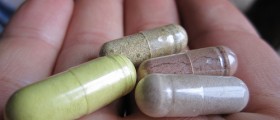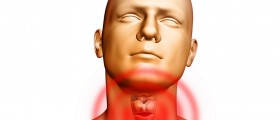
Thiamine, also known as vitamin B1, is an important vitamin that is required by the body for the production of important enzymes. Those enzymes regulate the metabolism of carbohydrates and productuon of energy in its most important form, adenosine triphosphate or ATP.
In case the body does not have or does not get enough thiamine, it simply does not get enough energy and several processes will not work properly. In addition to symptoms of mild deficiency, like weakness, fatigue and general lack of energy, this deficiency can cause several diseases.
Impact on Nervous System
The nervous system is one of the first to suffer from thiamine deficiency. The most important function of thiamine in this system is the production of acetylcholine, which is a neurotransmitter. Low levels of acetycholine can lead to increased dopamine production and hallucinations.
Wernicke-Korsakoff syndrome is a condition associated with high alcohol consumption and insufficient thiamine intake. Some of its symptoms include memory loss, hallucinations, depression, anxiety, loss of appetite, seizures and off eye movements.
This syndrome is treated with thiamine supplements, usually intravenous, however it is important to administer glucose only after the IV thiamine, because the other way around can lead to worsening of the problems.
Appetite and digestion problems are also strongly related to thiamine deficiency. This is because the digestive symptom is in fact a plexus of nerves which control appetite signals, digestion and proper absorption of nutrients. When the function of those nerves is upset, the digestive tract does not work properly and leads to even more problems.
Beriberi
Beriberi is a severe form of thiamine deficiency. Like Wernicke-Korsakoff syndrome, beriberi is also related to alcohol abuse. Beriberi is also linked to cultures where white rice comprises of the largest part of the diet. This, combined with alcoholism and deplated thiamine levels, can lead to symptoms like abnormal weight loss, weakness and fatigue, especially in the limbs, irregular heart beat, increased lactic acid secretion and consequently pain in muscles. In severe cases beriberi can be fatal.
The treatment for beriberi consists of administration of thiamine hydrochloride, and patients usually get well very soon after the treatment.
Diagnosing thiamine deficiency
In order to diagnose thiamine deficiency, it is necessary to observe transkelatose levels in red blood cells. Transkelatose is an enzyme that converts sugars into fructose and glucose. In case of thiamine deficiency, levels of this enzyme are low. The problem is that everyone has different normal levels of it, so it is difficult to establish if the levels are normal or low. What doctors do, they administer thiamine and then observe transkelatose levels. If they rise significantly, the thiamine deficiency can be diagnosed.

















Your thoughts on this
Loading...